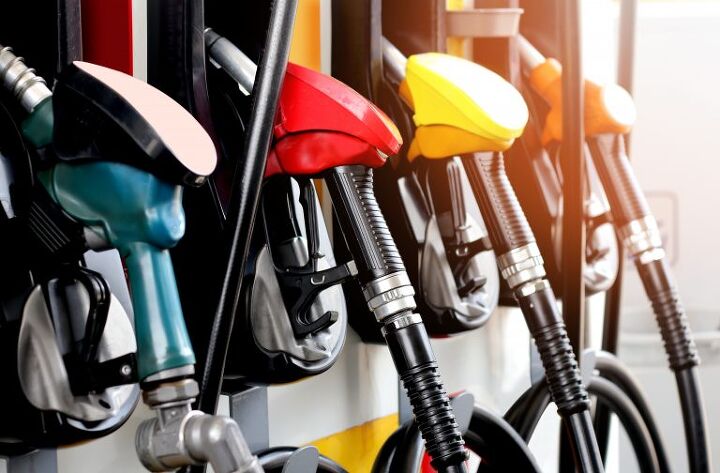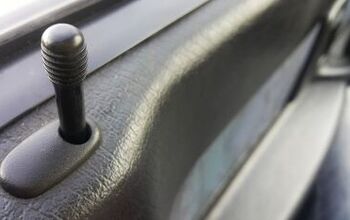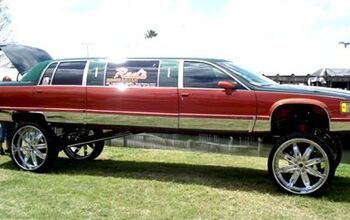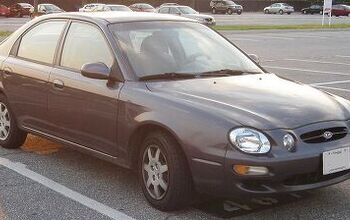Piston Slap: Knockin' on Stoichiometry's Door?

TTAC Commentator dastanley writes:
Hi Sajeev,
I have a Piston Slap question: Most of the gasoline sold here in New Mexico is high altitude gas, meaning that Regular is 86 octane, Midgrade is 88, and Premium is 91. The owner’s manuals for my ’06 Corolla and my wife’s ’08 Hyundai Tucson (try not to be jealous :-) ), calls for 87 octane fuel. Am I OK to use Regular or should I take the manuals at face value and pay a dime more per gallon for Plus?
My understanding with OBD-II vehicles (1996 to present) is that the engine doesn’t “know” what type of gasoline is used unless the knock sensor registers a knock and sends a signal to the ECM to momentarily retard spark timing and richen the mixture beyond stoichiometric. If that doesn’t happen, then the engine runs normally with the timing and mixture programmed for Regular at open loop (real-time feedback) factory specs, with adjustments made for density altitude and load. Thus the engine won’t know or care what octane fuel is run.
So Sajeev, what do you and the Best and Brightest have to say? Thank You Sir.
Sajeev answers:
What do I say? I love it when people correctly answer their own question!
Many OBD-I cars also use knock sensors like this, but that’s not the point: run 86 octane and you’ll be problem free for life. Even worse, the more expensive 88 octane is pointless as the knock sensor doesn’t give a crap about higher octane. That’s the job of the fuel tables, which do not consider something with more “energy” than 87 octane. Unless it’s been reprogrammed, ‘natch.
So either you get the fuel tables tweaked for 88 octane (likely a fruitless exercise) or just enjoy 86 octane and the magic powers of Ye Olde Knock Sensor.
Go ahead Best and Brightest, find a case that proves me wrong!
[Image: Shutterstock user ThePowerPlant]
Send your queries to sajeev@thetruthaboutcars.com. Spare no details and ask for a speedy resolution if you’re in a hurry…but be realistic, and use your make/model specific forums instead of TTAC for more timely advice.

More by Sajeev Mehta
Latest Car Reviews
Read moreLatest Product Reviews
Read moreRecent Comments
- Bkojote Allright, actual person who knows trucks here, the article gets it a bit wrong.First off, the Maverick is not at all comparable to a Tacoma just because they're both Hybrids. Or lemme be blunt, the butch-est non-hybrid Maverick Tremor is suitable for 2/10 difficulty trails, a Trailhunter is for about 5/10 or maybe 6/10, just about the upper end of any stock vehicle you're buying from the factory. Aside from a Sasquatch Bronco or Rubicon Jeep Wrangler you're looking at something you're towing back if you want more capability (or perhaps something you /wish/ you were towing back.)Now, where the real world difference should play out is on the trail, where a lot of low speed crawling usually saps efficiency, especially when loaded to the gills. Real world MPG from a 4Runner is about 12-13mpg, So if this loaded-with-overlander-catalog Trailhunter is still pulling in the 20's - or even 18-19, that's a massive improvement.
- Lou_BC "That’s expensive for a midsize pickup" All of the "offroad" midsize trucks fall in that 65k USD range. The ZR2 is probably the cheapest ( without Bison option).
- Lou_BC There are a few in my town. They come out on sunny days. I'd rather spend $29k on a square body Chevy
- Lou_BC I had a 2010 Ford F150 and 2010 Toyota Sienna. The F150 went through 3 sets of brakes and Sienna 2 sets. Similar mileage and 10 year span.4 sets tires on F150. Truck needed a set of rear shocks and front axle seals. The solenoid in the T-case was replaced under warranty. I replaced a "blend door motor" on heater. Sienna needed a water pump and heater blower both on warranty. One TSB then recall on spare tire cable. Has a limp mode due to an engine sensor failure. At 11 years old I had to replace clutch pack in rear diff F150. My ZR2 diesel at 55,000 km. Needs new tires. Duratrac's worn and chewed up. Needed front end alignment (1st time ever on any truck I've owned).Rear brakes worn out. Left pads were to metal. Chevy rear brakes don't like offroad. Weird "inside out" dents in a few spots rear fenders. Typically GM can't really build an offroad truck issue. They won't warranty. Has fender-well liners. Tore off one rear shock protector. Was cheaper to order from GM warehouse through parts supplier than through Chevy dealer. Lots of squeaks and rattles. Infotainment has crashed a few times. Seat heater modual was on recall. One of those post sale retrofit.Local dealer is horrific. If my son can't service or repair it, I'll drive 120 km to the next town. 1st and last Chevy. Love the drivetrain and suspension. Fit and finish mediocre. Dealer sucks.
- MaintenanceCosts You expect everything on Amazon and eBay to be fake, but it's a shame to see fake stuff on Summit Racing. Glad they pulled it.


































Comments
Join the conversation
Well again, there is considerable waffling in some of the owner's manuals these days. Ford substitutes for the usual statement that lower than 87 octane fuel is acceptable at high altitude to a "Watch out for lower octane fuel often sold at higher altitude!" warning. I understand from the Mustang forums that the 3.7L puts out abut 10 extra hp with premium. A manual that says "premium fuel will provide improved performance." Probably means that premium fuel will provide improved performance. Think about it: A middle-class automobile that requires premium is at a considerable competitive disadvantage to one that does not. With knock sensors its possible for the manufacturers to make cars that run on regular--but really prefer premium.
When I was out test driving with my mother for her '10 RX350 (which she ultimately purchased), she asked the salesidiot about fuel. "My Infiniti said 'premium fuel recommended' but I always put 87 octane in and had no issues in 14 years. Can I do the same thing with this car?" "Oh, ma'aam, the Lexus is a PREMIUM vehicle and requires PREMIUM fuel." Which prompted me to start questioning the salesmoron: "What is different about Lexus's tuning of this engine over the Camry and Highlander? Doesn't it share all the same parts? Isn't the power essentially the same, only different for packaging purposes?" Salesquack then states, "Oh, sir, you don't know how much Lexus engineered this vehicle." To which I replied, "You, sir, don't know squat about the product you are selling and I suggest you do a little reading before you hand out comments that make you look stupid." My mother told me that I was mean to him. Not the first time, and won't be the last time that I call someone out for trying to convince someone with a complete lack of facts. Result - she has had the car for 3 1/2 years and only uses 87 octane - mostly from Costco and Sams Club. No knocking or even perceived down on power.